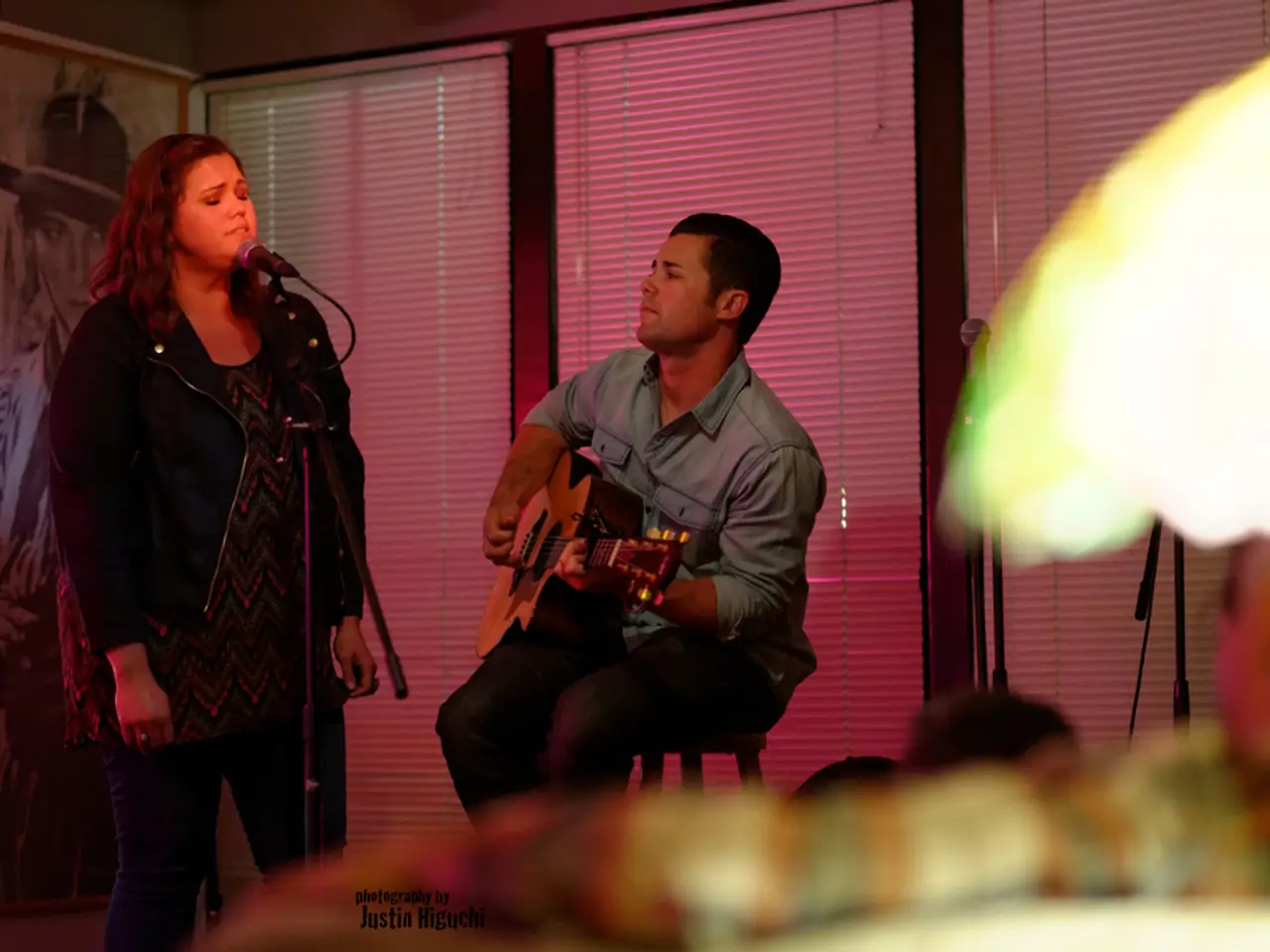AI Producing Rap Music: Exploring the Tech Behind the Rhythms and Lyrics
In the ever-evolving world of technology, AI-generated rap music is making waves in various creative industries. From game development to marketing and education, these systems are transforming the way we create and consume music.
AI rap generators, like Musicful, use machine learning models to turn user inputs into full rap performances. These systems analyze the input to detect rhyme schemes, syllable stress, rhythm, and style, and then generate synchronized rap vocals and backing tracks. Users can choose genres or flow characteristics to tailor the output, making it a versatile tool for content creators.
However, the increasing use of AI rap raises several ethical, cultural, and legal concerns. One of the primary issues is consent and credit. Artists' works are often used to train AI models without their permission or acknowledgment, raising questions about unauthorized use and appropriation.
Authenticity and artistic identity are also at stake. Voice cloning and musical deepfakes can imitate specific artists’ styles or voices, creating concerns about misrepresentation and the erosion of original creative identity. Transparency is another concern, with consumers questioning whether they should be informed when a track is AI-generated to avoid deception or confusion about authorship and creativity.
Culturally, the impact on the hip-hop community is significant. Rap is a culturally rich art form deeply connected to identity, storytelling, and social context. AI generation risks commodifying or diluting these cultural elements if not handled respectfully. Representation and diversity are also crucial, as AI systems reflect the data they are trained on, which may lead to biased or stereotyped outputs affecting cultural portrayal. Balancing AI-driven innovation with respect for the historical and socio-political roots of rap music is essential.
Legally, copyright ownership is a complex issue. AI-generated music, with no human authorship, often falls into the public domain under current laws, complicating rights management and revenue allocation. Using copyrighted songs or vocal samples without authorization for AI training can infringe on intellectual property rights. Liability and authorship are also difficult to attribute, especially involving voice mimicking and content originality.
Industry responses are emerging, with some music companies and tech firms developing royalty systems and attribution protocols for AI use, aiming to protect artists and monetize AI-generated works legally.
AI rap is also finding its place in content creation for YouTube intros, podcast jingles, and social media content. It's a cost-effective solution for independent creators like filmmakers and streamers who lack studio access or licensing costs. However, there's a risk of platforms being overwhelmed with low-effort or repetitive tracks. Moreover, AI rap systems may unintentionally reproduce stereotypes or commodify identity without proper context. Many models are trained on large corpora of existing lyrics and performances, some of which are protected intellectual property. When an AI model generates lyrics or flows influenced by thousands of artists, who deserves credit?
In conclusion, AI rap generators fuse advanced NLP and audio synthesis to produce customized rap music from diverse inputs. However, their growing use amplifies ethical, cultural, and legal challenges mostly centered on consent, authenticity, cultural respect, and intellectual property frameworks still adapting to AI’s rise. Continued dialogue among technologists, artists, legal experts, and communities is essential to navigate these complexities responsibly.
Artificial intelligence (AI) has extended its reach into the realm of music, particularly in generating rap music. For instance, Musicful, an AI rap generator, employs machine learning models to create full rap performances based on user inputs.
The increasing adoption of AI rap, however, raises ethical dilemmas related to consent, cultural appropriation, and intellectual property rights. For example, using artists' works to train AI models without their consent questions the boundaries of unauthorized use and copyright infringement.




